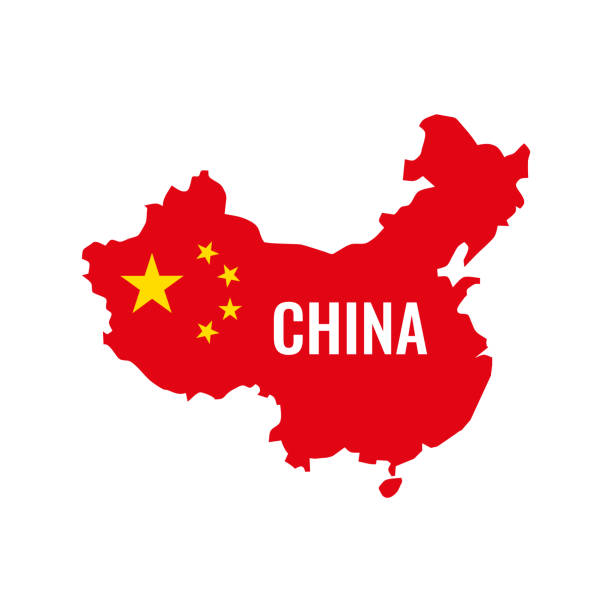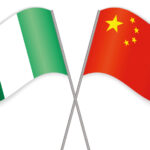China’s Indo-Pacific neighbours expressed concern after the Chinese military on 25 September fired an Inter-Continental Ballistic Missile (ICBM) while Beijing stated through state-run media that it had given relevant neighbours advanced notice.
Some top officials said they were unaware. A spokesperson for New Zealand foreign minister Winston Peters told the media that the missile test was an unwelcome and concerning development.
It was the first time in 44 years that China had launched an ICBM, the Australian government stated and that it had sought an explanation from China.
A spokesman told media outlets that this comes in the context of China’s rapid military build-up which is taking place without the transparency and reassurance that the region looks for from some great powers.
- Let’s use gaming industry to address climate change issues – NLTF bossa
- Nigeria to launch commercial pasture production to boost livestock sector — Minister
Australia is concerned by any action that is destabilizing and raises the risk of miscalculation in the region and is consulting regional partners about this launch.
Japanese government spokesperson Yoshimasa Hayashi told reporters at a press conference following the test fire that Japan had no advanced notice. Hayashi said the Chinese government had increased its military presence around Japan citing it as a concern.
Last month a Chinese military plane breached Japanese airspace in an unprecedented move. This Chinese military trend with its lack of transparency is a serious concern for Japan and the international community, he said. A Japanese Coast Guard official said it had received a navigation warning from China on 23 September for space debris in three zones in the South China Sea in the Pacific North of the Philippines Luzan Island and in the South Pacific on 25 September, but it did not confirm whether the warning was related to the missile launch.
ICBMs are nuclear-armed missiles with a range surpassing 3,500 miles, capable of striking almost any target in the world. Last year US lawmakers confirmed that China now has more ICBM launchers than the United States and that number has increased five times faster than US Predictions. China has not publicly disclosed the size of its nuclear stock. The missile is a DF-41 which according to the Centre for Strategic and International Studies is China’s long-range missile able to travel an estimated 9,300 miles. The distance between Shanghai and San Francisco is about 6,100 miles.
According to an official statement the ICBM launched on 25 September was carrying a simulated warhead and landed in the designated sea area near the French Polynesian Islands. Beijing stated that the test was routine and not targeted toward any country. The missile test coincided with China’s increased military aggression in the Indo-Pacific. Retired US Navy Captain James Fanell told The Epoch Times that the test sent a clear and unambiguous signal that China was committed to a strategic breakout and nuclear arsenal. This test comes as Beijing has rapidly increased its nuclear stockpile and upgraded submarine and bomber plane development for nuclear missile compatibility. He said, by every metric China is flexing its strategic muscles by expanding its nuclear arsenal and its strategic reach.
Timothy Heath, Senior International Defence Researcher with the Rand Corporation told The Epoch Times there was also a domestic message being sent. He noted that the launch came after scandals over corruption in the People’s Liberation Army Rocket Force (PLARF), that resulted in a purge among its top brass. He said the test was an opportunity for the PLARF to restore its credibility with China’s leadership. Heath noted that it was also meant to signal to the world that the PLARF remained capable despite the scandals. A research fellow for China studies and the chair of the Indo-Pacific Studies Program at Takshashila Institution told the Epoch Times that the tests seemed like a rushed effort and he said it could be intended to change the narrative among the Chinese. Clearly, economic stress is mounting in China and there are signs of friction, he said.
According to a researcher, there has also been tension with Chinese thought leaders publicly criticizing the economy. John Siari, Dean of the Hamilton Lugar School of Global and International Studies at Indiana University said that a test of this kind has domestic, regional and global audiences. He told The Epoch Times within China it supports a nationalist narrative about the government’s competence and resolve. Regionally it is part of a broader effort to discourage China’s neighbours from challenging Beijing on Taiwan or other flash points.
To global audiences, the test may seek to amplify perceptions that China is gaining rapidly on the United States in military power and technological prowess. Fanell also said that this put to bed the notion that the PLA Strategic Rocket Force is rife with corruption and disloyalty to General Secretary Xi. But he disagreed with Heath that the goal was only deterrence and viewed the test as evidence that the nuclear disarmament talks between the United States and China have been toothless.
He said these actions run counter to China’s public statements and diplomatic talks. This test demonstrates China has both the intent and capability to attack the American Homeland with nuclear weapons something PRC military officials have talked about doing for over 20 years, Fanell said.

 Join Daily Trust WhatsApp Community For Quick Access To News and Happenings Around You.
Join Daily Trust WhatsApp Community For Quick Access To News and Happenings Around You.


